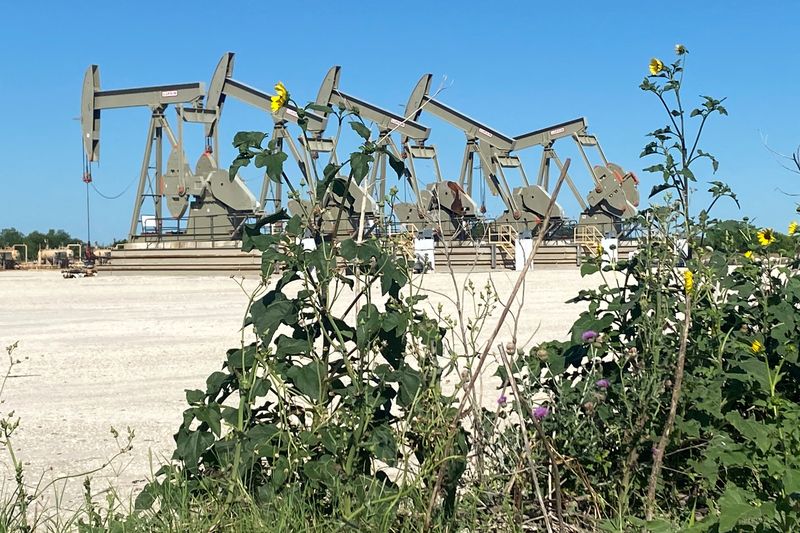By Andrew Hayley and Jeslyn Lerh
SINGAPORE (Reuters) -Oil prices edged higher on Tuesday after Israel struck Rafah in Gaza, while negotiations for a ceasefire with Hamas continued without resolution.
Brent crude futures were up 23 cents, or 0.28%, at $83.56 per barrel at 0400 GMT, while U.S. West Texas Intermediate (WTI) crude futures rose 24 cents, or 0.31%, to $78.72 a barrel.
“Oil prices opened up this morning, with some roadblocks in the ceasefire talks between Israel and Hamas leading market participants to price for geopolitical tensions to potentially drag for longer,” said Yeap Jun Rong, market strategist at IG.
Market participants will be looking ahead to upcoming U.S. crude inventories data releases, Yeap added.
U.S. crude oil and product stockpiles were expected to have fallen last week, a preliminary Reuters poll showed on Monday. The crude inventories could have on average fallen by about 1.2 million barrels in the week to May 3, based on analyst forecasts. [EIA/S]
Oil prices had settled higher on Monday, partially reversing last week’s declines. Both contracts had posted the steepest weekly losses in three months as the market focused on weak U.S. jobs data and the possible timing of a Federal Reserve interest rate cut.
Palestinian militant group Hamas on Monday agreed to a Gaza ceasefire proposal from mediators, but Israel said the terms did not meet its demands and pressed ahead with strikes in Rafah while planning to continue negotiations on a deal.
Israeli forces struck Rafah on Gaza’s southern edge from the air and ground and ordered residents to leave parts of the city, which has been a refuge for more than 1 million displaced Palestinians.
3rd party Ad. Not an offer or recommendation by Investing.com. See disclosure here or
remove ads
.
A lack of settlement between the parties in the now seven-month long conflict has supported oil prices, as investors worry regional escalation of the war will disrupt Middle Eastern crude supplies.
Saudi Arabia’s move to raise the official selling prices for its crude sold to Asia, Northwest Europe and the Mediterranean in June also supported prices, signalling expectations of strong demand this summer.
The world’s top exporter hiked its flagship Arab Light crude oil price to Asia to $2.90 a barrel above the Oman/Dubai average in June, the highest since January and at the upper end of traders’ expectations in a Reuters survey.
Meanwhile, a stronger dollar capped gains in oil futures as it makes crude more expensive for traders holding other currencies. The dollar index, which measures the greenback against six major peers, rose to 105.18 at 0400 GMT.
